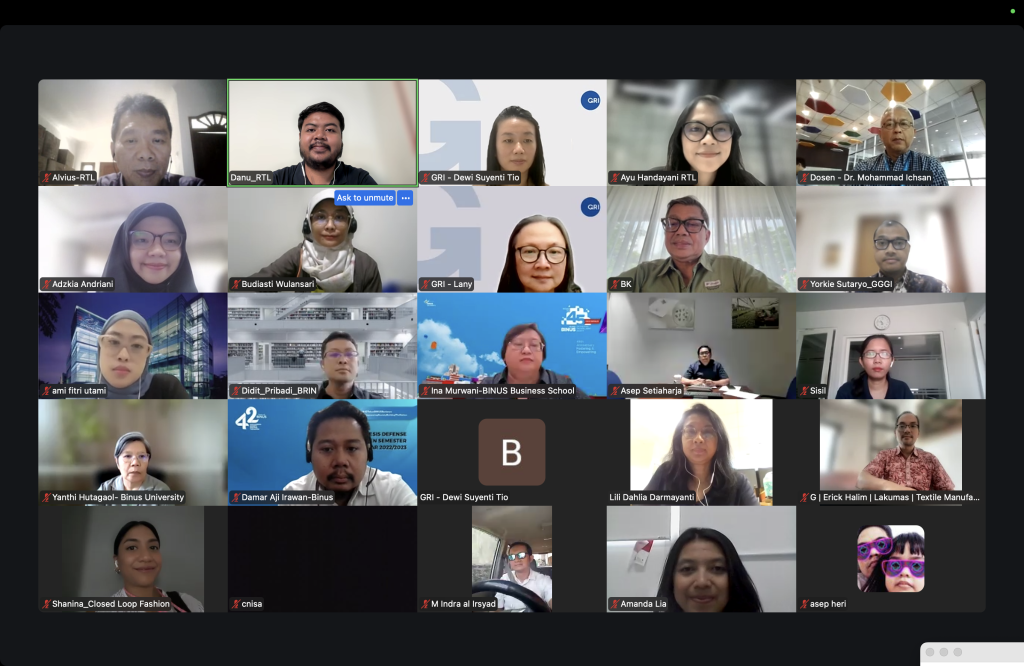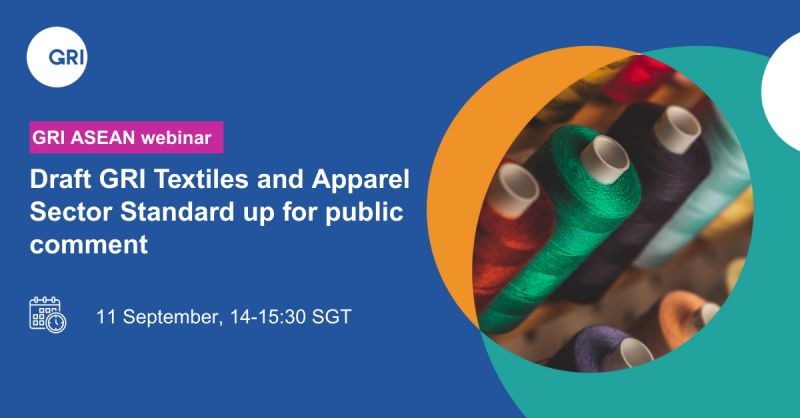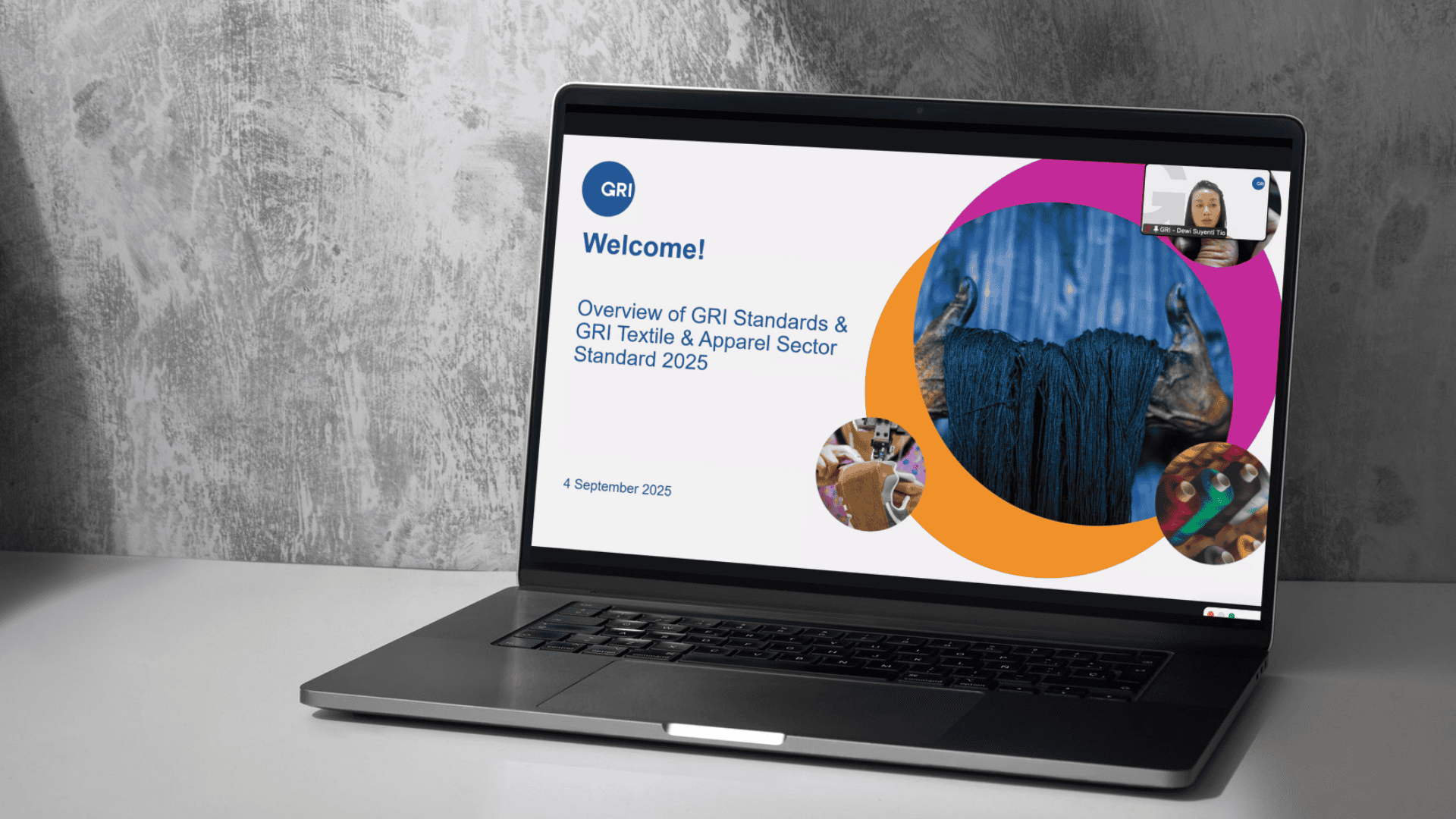On Thursday, 4 September 2025, Rantai Tekstil Lestari (RTL), in partnership with the Global Reporting Initiative (GRI), hosted a Public Consultation Webinar on the Draft GRI Sector Standard for Textiles and Apparel. The session provided a platform for Indonesian stakeholders to give comments and feedback on the draft standard, ensuring that the perspectives of the national textile industry are represented in the development of globally trusted sustainability reporting frameworks.
Emphasizing Inclusivity and Responsibility
In his opening speech, Basrie Kamba (Chair of RTL) underlined the importance of the GRI Standards not only for large-scale industries but also for micro, small, and medium enterprises (MSMEs), particularly those engaged in export. He stressed that sustainability reports need not be lengthy—sometimes as little as four pages can provide meaningful insights—so long as they remain transparent, auditable, and not merely self-claims.
Danang Girindrawardana (Indonesian Textile Association, API) echoed this view, emphasizing that sustainability must encompass the entire production chain, from upstream to downstream, while also integrating social responsibility. He highlighted the significant role of the textile and apparel sector as a labor-intensive industry that supports local economies, advocating for the inclusion of “people” alongside “planet” and “profit” in Indonesia’s sustainability agenda.

Key Topics of Discussion
The consultation focused on four critical areas in the draft standard:
- Hazardous Chemicals: The need for companies to report chemical handling practices, training programs, and monitoring methods. Participants noted the importance of fostering openness, especially among SMEs.
- Waste and Circular Economy: Stakeholders called for simpler reporting tools, including templates and checklists, to reduce the burden of overly complex reporting requirements. Discussions also highlighted the balance between quantitative and qualitative data to ensure inclusivity.
- Procurement Practices: Calls were made to clarify definitions—such as the role of homeworkers—and to consider differentiated reporting requirements for small versus large enterprises.
- Supply Chain Traceability: Participants emphasized the challenges of tracking impacts across multi-tier supply chains and stressed the need for flexible, realistic approaches to impact assessment.
These discussions surfaced valuable recommendations: simplifying frameworks, developing practical toolkits, and ensuring that the standards are adaptable for both large corporations and MSMEs.
Towards Regional and Global Engagement

The event concluded with remarks from Ayu Handayani (RTL), who highlighted the importance of this consultation not only as a technical exercise but also as a test of relevance. She emphasized that feedback from Indonesian stakeholders will help ensure that the GRI Standards reflect on-the-ground realities and support the sector’s transition toward sustainability.
As the global consultation continues, stakeholders are invited to participate in the upcoming GRI ASEAN Webinar. At this event, Basrie Kamba will deliver remarks on the importance of standardization in sustainability reporting.
📅 Thursday, 11 September 2025
⏰ 14.00 WIB
🔗 Register via this link
This next session represents an opportunity for Indonesian voices to resonate in regional and international dialogues—ensuring that the journey toward a sustainable and transparent textile industry includes all stakeholders.


